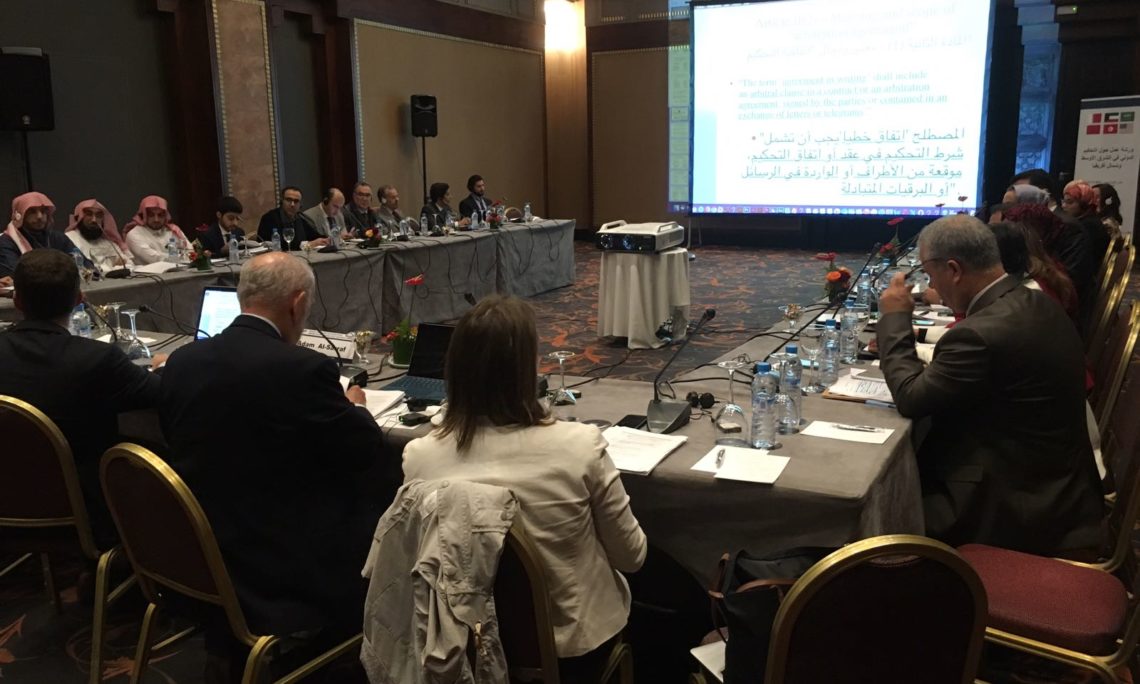Saudi Arabia implements the UNCITRAL Model Law on Cross-Border Insolvency in its Domestic Legislation
Summary:
Saudi Arabia implements the UNCITRAL Model Law on Cross-Border Insolvency in it’s domestic legislation which aims to help States create an equitable, contemporary, and fair insolvency framework so that cross-border procedures involving debtors who are facing serious financial difficulties, can be handled more successfully. To make the MLCBI a more useful tool, the accompanying Guide to Enactment, which offers background and explanatory material, was updated in 2013.
Content:
With the issuance of the Rules of Cross-Border Bankruptcy Proceedings on 16 December 2022, Saudi Arabia becomes the 56th State to have enacted legislation based on the UNCITRAL Model Law on Cross-Border Insolvency (MLCBI).
Saudi Arabia and the UNCITRAL secretariat have been working closely together since 2019 to accomplish this success. This collaboration’s major goals are to strengthen Saudi Arabia’s commercial legal system and increase the ability of many stakeholders, including government agencies and legal experts, to use and execute UNCITRAL texts. The United Nations Convention on International Settlement Agreements Resulting from Mediation (New York, 2018) (also known as the “Singapore Convention on Mediation”) has been ratified by Saudi Arabia. This was followed by the implementation of the MLCBI. A statute based on the UNCITRAL Legislative Guide on Key Principles of a Business Registry is also being finalized in Saudi Arabia, and UNCITRAL texts relevant to the digital economy and global trade are also being updated.
Since its adoption in 1997, the MLCBI has become an important document in an area of law that has previously been seen as extremely difficult to harmonize on a worldwide scale due to the numerous policy problems involved. When UNCITRAL adopted the text twenty-five years ago, it united the international community in the recognition that national insolvency laws, which are ill-equipped to deal with cross-border insolvencies, increase the risks of asset concealment or dissipation and reduce the chances of rescuing viable businesses or efficiently liquidating non-viable businesses. The MLCBI serves as a model for states to solve these concerns. The MLCBI recognizes the variations between national procedural legislation and does not attempt to substantively unify bankruptcy law. It provides answers that help in several modest but substantial ways.
The UNCITRAL Model Law on Cross-Border Insolvency: The Judicial Perspective, which was approved in 2011 and amended in 2013, provides basic guidelines on the problems that a judge may need to consider, based on the aims of those who drafted the MLCBI and the experiences of those who have used it in practice.
The measures offered by MLEGI are intended to address specific needs of insolvency proceedings affecting multiple enterprise group members, particularly the need to achieve a certain level of centralization, coordination, and cooperation of such proceedings, even though they draw upon and, in some respects, are similar to those available under MLCBI.
The United Nations Commission on International Trade Law (UNCITRAL) is the primary legal body of the United Nations system in the subject of international trade law. Its mission is to reduce legal barriers to international trade by gradually updating and unifying trade law. It drafts legal documents in a variety of crucial sectors, including international commercial dispute settlement, online commerce, insolvency, international payments, sales of products, transport law, procurement, and infrastructure development. UNCITRAL also provides technical help to law reform efforts, such as helping Member States in reviewing and assessing their law reform requirements and drafting the legislation necessary to implement UNCITRAL texts. The UNCITRAL secretariat resides in Vienna, Austria.
Picture and Article Sources: MEPI, United Nations


Leave a Reply